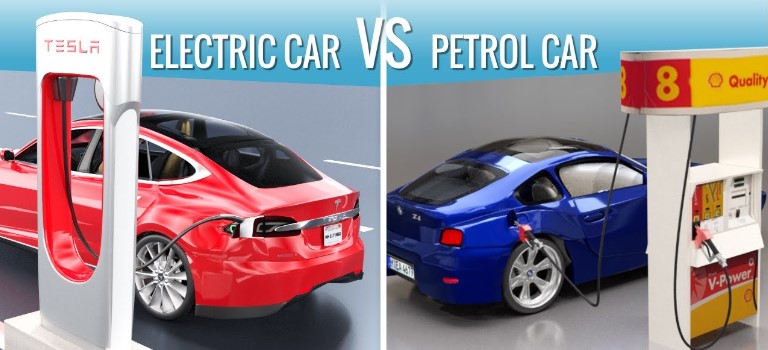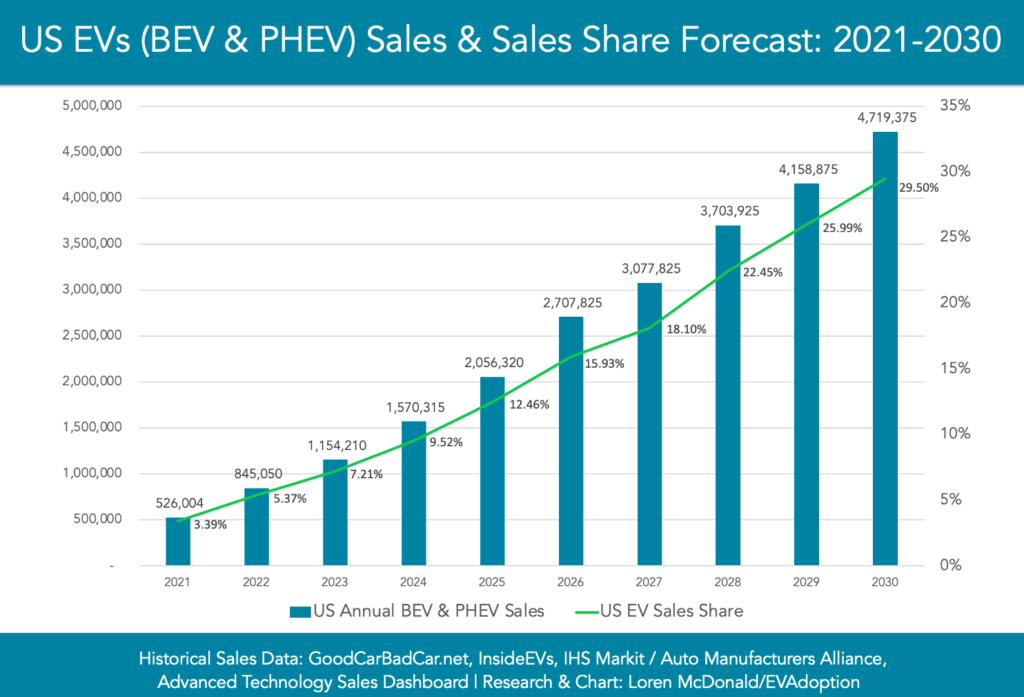Is Electric Car Better Than Petrol?
Table of Contents
Introduction
In today’s fast-paced world, the automotive industry is undergoing a transformative shift. As you stand at the crossroads of choosing your next vehicle, the decision isn’t just about four wheels and an engine anymore. It’s a choice between tradition and innovation, between the familiar hum of a petrol engine and the silent revolution of an electric car. The question on everyone’s mind echoes: “Is an electric car truly better than petrol?” Let’s navigate through the intricacies of this debate, exploring the green drive revolution that is reshaping the way we view transportation.
1. Understanding the Buzz

The buzz surrounding electric cars is hard to ignore. It’s not just a trend; it’s a movement toward a more sustainable future. Electric cars, powered by batteries and electric motors, are gaining traction for several reasons. Beyond being the shiny new thing on the block, they promise reduced environmental impact, lower operational costs, and a departure from our dependency on fossil fuels. But let’s dive deeper into the nuances that make electric cars the talk of the town.
Electric vehicles (EVs) produce zero tailpipe emissions, a stark contrast to their petrol counterparts that release pollutants into the air. This environmental edge positions electric cars as a crucial player in the fight against climate change. The reduced reliance on finite fossil fuels also signifies a shift toward energy sustainability, a change that resonates with environmentally conscious consumers.
2. Eco-Friendly Edge

The eco-friendly edge of electric cars goes beyond simply reducing emissions. It extends to the entire lifecycle of these vehicles. Manufacturing electric cars generally involves fewer environmental impacts compared to traditional petrol cars. Additionally, advancements in battery recycling are paving the way for a more circular and eco-conscious approach to car production.
In essence, choosing an electric car isn’t just a personal decision; it’s a contribution to a cleaner planet. The green drive revolution is fueled not only by the innovation of electric cars but also by the collective effort of individuals making environmentally conscious choices.
3. Performance Showdown
Now, let’s address the elephant in the room: performance. Traditionally, petrol cars have been synonymous with speed and power. However, the electric car revolution is challenging this narrative. Electric cars are no longer just environmentally friendly; they’re also performance powerhouses.
The electric motor’s instant torque delivery provides a thrilling acceleration experience. Picture this: a silent, swift surge forward the moment you press the pedal. Electric cars are redefining the driving experience, proving that environmental responsibility doesn’t mean compromising on performance.
4. Charging vs. Refueling

One of the critical considerations in the electric car vs. petrol debate is the convenience of refueling. How does charging an electric car stack up against the familiar routine of stopping at a gas station? The answer lies in understanding the evolving infrastructure supporting electric vehicles.
Charging an electric car can be as simple as plugging it into a power outlet at home or utilizing fast-charging stations available in various locations. While it may take a bit longer than a petrol refill, the flexibility of charging options is expanding rapidly. Picture the convenience of waking up to a fully charged car every morning – a perk that petrol cars simply can’t offer.
5. Cost Considerations

Let’s talk dollars and cents. Are electric cars more expensive to own and operate than their petrol counterparts? The initial purchase price of an electric car may indeed be higher, primarily due to the cost of the battery. However, the total cost of ownership paints a different picture.
Electric cars typically have lower operational costs, thanks to the efficiency of electric motors and fewer moving parts. Additionally, governments around the world often provide incentives, rebates, and tax credits to encourage the adoption of electric vehicles, making them more financially appealing.
6. Range Anxiety, Myth or Reality?

A lingering concern among potential electric car adopters is the infamous “range anxiety.” The fear of running out of battery power before reaching a charging station has been a significant hurdle for electric vehicles. However, as technology advances, this anxiety is gradually transforming from a reality into a myth.
Modern electric cars boast impressive ranges, challenging the stereotype that they are only suitable for short commutes. With innovations in battery technology, some electric vehicles can cover distances comparable to traditional petrol cars on a single charge. The myth of range anxiety is giving way to the reality of electric cars becoming viable options for various driving needs, including long-distance travel.
Understanding the factors influencing range, such as driving habits, weather conditions, and the efficiency of the vehicle, is crucial. As electric cars continue to break barriers, range anxiety is becoming an increasingly minor concern in the broader conversation about the benefits of electric mobility.
7. Maintenance Matters
Beyond the environmental and financial advantages, the maintenance of a vehicle is a critical factor in the electric car vs. petrol debate. Traditional petrol cars are intricate machines with numerous moving parts that require regular maintenance, from oil changes to exhaust system checks.
Electric cars, with their simpler design and fewer components, present a paradigm shift in the realm of maintenance. The absence of a combustion engine eliminates the need for oil changes and reduces wear on components like the transmission. The result? Lower maintenance costs over the lifespan of an electric vehicle.
Regenerative braking, a feature in many electric cars, further contributes to reduced wear on traditional brake systems. The technology converts kinetic energy into stored electrical energy during braking, not only enhancing efficiency but also minimizing wear on brake pads. This innovative approach not only saves money for the vehicle owner but also positions electric cars as low-maintenance alternatives.
8. Government Incentives
Governments worldwide are recognizing the pivotal role electric vehicles play in achieving environmental sustainability goals. To encourage the adoption of electric cars, numerous countries have implemented a range of incentives and policies.
These incentives often come in the form of tax credits, rebates, and exemptions. The financial benefits serve as powerful motivators for prospective electric car buyers, helping offset the initial higher costs of these vehicles. Additionally, some regions provide perks such as access to carpool lanes, reduced registration fees, and exemptions from tolls.
The availability and scope of government incentives vary across regions, creating a dynamic landscape that influences the attractiveness of electric vehicles in different markets. Staying informed about the incentives applicable in your area can significantly impact the cost-effectiveness of choosing an electric car.
9. The Tech Factor
The allure of electric cars extends beyond their environmental and economic advantages – it delves into the realm of cutting-edge technology. The tech factor plays a pivotal role in enhancing the overall driving experience of electric vehicles.
Regenerative braking, a technology mentioned earlier for its impact on maintenance, also contributes to the efficiency of electric cars. By capturing and storing energy during braking, regenerative braking not only reduces wear on brake systems but also enhances the vehicle’s range.
Smart charging is another technological marvel that aligns with the digital age. Electric cars often come equipped with sophisticated charging systems that allow users to optimize charging times based on factors such as electricity rates and grid demand. This not only empowers users with greater control over their charging experience but also promotes energy efficiency.
The integration of advanced technologies doesn’t stop there. Electric cars often feature state-of-the-art infotainment systems, connectivity options, and autonomous driving capabilities. The tech-savvy nature of electric vehicles positions them as not just modes of transportation but as lifestyle choices for the modern, digitally inclined consumer.
10. Resale Value Realities
Investing in a vehicle is not just about the initial purchase; it’s also about the long-term value. The resale value of a car is a crucial consideration for many buyers, and electric cars are rewriting the script on this front.
Traditionally, there has been a perception that electric cars depreciate faster than their petrol counterparts. However, as the market for electric vehicles expands and consumer confidence grows, this perception is evolving.
Many factors contribute to the competitive resale value of electric cars. The increasing demand for pre-owned electric vehicles, coupled with advancements in battery technology, has instilled confidence in buyers. The result is a market where electric cars are viewed as reliable, cost-effective options that hold their value over time.
Understanding the resale value realities of electric cars is vital for consumers looking to make a sustainable and financially sound choice. As the automotive landscape continues to shift, electric cars are proving to be not just environmentally conscious but also economically savvy investments.
In the dynamic arena of electric cars vs. petrol, exploring these additional topics adds depth to the ongoing conversation. From debunking range anxiety to unraveling the technological wonders within electric vehicles, each aspect contributes to a comprehensive understanding of the green drive revolution. As consumers, policymakers, and enthusiasts alike navigate this transformative landscape, the road ahead promises innovation, sustainability, and an electrifying drive into the future.
11. Petrol’s Last Stand?
The automotive industry stands at a crossroads, with petrol engines facing unprecedented challenges from the rising tide of electric vehicles. While the immediate obsolescence of petrol cars is unlikely, there is an undeniable shift in the industry’s landscape.
As countries worldwide set ambitious targets for reducing carbon emissions and promoting sustainability, the automotive industry is responding with a renewed focus on electric mobility. The writing is on the wall: the era of petrol cars reigning supreme is giving way to a future where electric vehicles carve out a more significant share of the market.
The transition is not only driven by environmental concerns but also by the evolving preferences of consumers. The appeal of electric cars, with their lower operating costs, reduced environmental impact, and cutting-edge technology, is reshaping the narrative of what a modern vehicle should be.
The push for electric mobility is not just an industry trend; it’s a reflection of a broader societal shift toward greener, more sustainable living. While petrol cars may not disappear overnight, their prominence is undeniably diminishing. The future of transportation is being shaped by electric vehicles, ushering in a new era where sustainability and innovation take center stage.
12. Future Predictions

Gazing into the crystal ball, predicting the future of the automotive industry involves navigating a landscape of rapid technological advancements and shifting consumer preferences. The trends, however, seem to be pointing in a clear direction: electric cars are not just a fleeting trend but a fundamental shift in how we envision transportation.
Advancements in battery technology are crucial players in this unfolding narrative. As batteries become more efficient, with increased energy density and faster charging capabilities, the limitations that once hindered electric vehicles are gradually becoming relics of the past.
Charging infrastructure is another critical factor. The ongoing expansion of charging networks, both at home and in public spaces, is eliminating the barriers that once made owning an electric car seem impractical. With faster and more accessible charging options, electric vehicles are becoming increasingly viable for a broader range of consumers.
Government policies and incentives continue to shape the trajectory of the electric car revolution. As more countries implement measures to encourage electric vehicle adoption, the market dynamics are shifting, creating an environment where choosing an electric car is not just a statement but a practical and sustainable choice.
The rise of autonomous driving technology adds another layer to the future of transportation. Electric cars, with their inherently digital nature, are well-positioned to integrate seamlessly with autonomous systems. The convergence of electric and autonomous technologies could redefine not only how we drive but also how we perceive and interact with vehicles.
In summary, the future of the automotive industry appears to be electric, interconnected, and sustainable. As electric cars become more mainstream, the driving experience is set to evolve, offering not just a mode of transportation but a connected, eco-conscious lifestyle.
13. Making the Switch: Practical Tips
For those ready to embrace the electric future, making the switch involves more than a change in vehicle; it’s a shift in mindset and lifestyle. Here are practical tips to ensure a smooth transition:
a. Research Charging Infrastructure: Familiarize yourself with the charging stations available in your area. Explore both public and private charging options to ensure convenience in your daily life.
b. Understand Your Driving Patterns: Assess your daily driving habits to choose an electric car with a suitable range. Understanding your typical travel distance will help you make an informed decision about the right electric model for your needs.
c. Leverage Government Incentives: Take advantage of any available government incentives or rebates for electric car buyers. These can significantly reduce the upfront cost of purchasing an electric vehicle.
d. Invest in Home Charging: Consider installing a home charging station for added convenience. This not only ensures a reliable charging option but also allows you to take advantage of off-peak electricity rates.
e. Embrace the Learning Curve: Electric cars may operate differently from petrol cars. Embrace the learning curve, from understanding regenerative braking to optimizing charging times, to make the most of your electric driving experience.
By adopting these practical tips, you can navigate the transition to an electric vehicle seamlessly, ensuring that you not only contribute to a sustainable future but also enjoy the benefits of cutting-edge automotive technology.
Is Electric Car Better Than Petrol?
Conclusion: A Road Less Polluted
As we navigate the intricate terrain of the electric car vs. petrol debate, the conclusion is clear: the road less polluted is paved with electric dreams. From the eco-friendly advantages and impressive performance to lower maintenance costs and government incentives, electric cars stand as formidable contenders in the automotive arena.
The choice between an electric car and a petrol car is no longer just a matter of personal preference; it’s a decision that carries global implications. The road less polluted isn’t just a metaphor; it’s a tangible path toward a more sustainable and environmentally conscious future.
As consumers, policymakers, and industry players collectively steer toward a greener horizon, the electric car is not merely a vehicle; it’s a symbol of progress. The journey ahead promises innovation, sustainability, and an electrifying drive into a future where the road less polluted becomes the road well-traveled.
FAQs – Your Burning Questions Answered
Q1: Are electric cars truly better for the environment?
Absolutely! Electric cars produce zero tailpipe emissions, reducing air pollution and combating climate change.
Q2: Can electric cars go as far as petrol cars on a single charge or refuel?
With advancements in battery technology, many electric cars now boast competitive ranges, making them suitable for various driving needs.
Q3: Is it more expensive to maintain an electric car?
Surprisingly, no. Electric cars generally have fewer moving parts, translating to lower maintenance costs compared to traditional petrol vehicles.
Q4: What government incentives are available for electric car buyers?
Governments worldwide offer incentives such as tax credits and rebates to promote electric car adoption, making them more affordable.
Q5: Will petrol cars become obsolete in the near future?
While not entirely obsolete, the shift toward electric vehicles is undeniable, and petrol cars may see a decline in popularity in the coming years.
Search us on Google by typing Interestopedia.com
